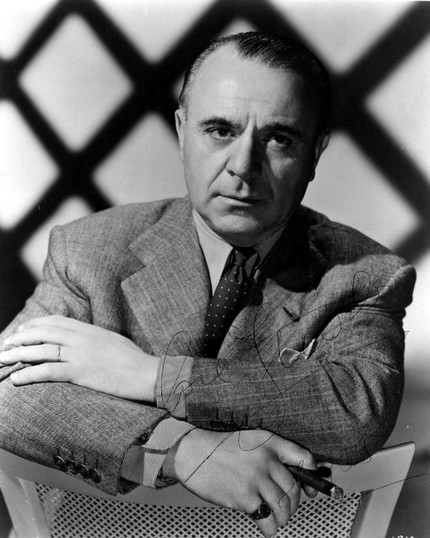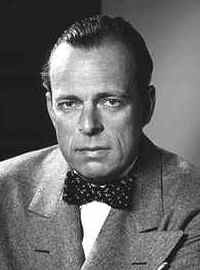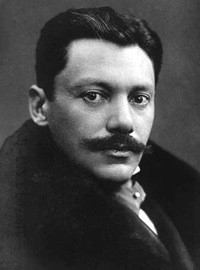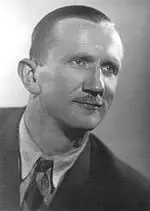
Pictures (José Iturbi) |
Jose Iturbi

The Spanish pianist’s life story is slightly reminiscent of the scenario of a Hollywood biopic, at least until the moment when Iturbi began to enjoy world fame, which made him the real hero of several films shot in the capital of American cinema. There are a lot of sentimental episodes in this story, and happy twists of fate, and romantic details, however, most often, they are hardly plausible. If you leave aside the latter, then even then the film would have turned out to be fascinating.
A native of Valencia, Iturbi from childhood watched the work of his father, a tuner of musical instruments, at the age of 6 he already replaced a sick organist in a local church, earning his first and much-needed pesetas for his family. A year later, the boy had a permanent job – he accompanied the demonstration of films in the best city cinema with his piano playing. José often spent twelve hours there – from two in the afternoon to two in the morning, but still managed to earn extra money at weddings and balls, and in the morning to take lessons from the teacher of the conservatory X. Belver, to accompany in the vocal class. As he got older, he also studied for some time in Barcelona with J. Malats, but it seemed that the lack of funds would interfere with his professional career. As the rumor goes (perhaps invented in hindsight), the citizens of Valencia, realizing that the talent of the young musician, who became the favorite of the whole city, was disappearing, raised enough money to send him to study in Paris.
Here, in his routine, everything remained the same: during the day he attended classes at the conservatory, where V. Landovskaya was among his teachers, and in the evening and at night he earned his bread and shelter. This continued until 1912. But, after graduating from the conservatory, the 17-year-old Iturbi immediately received an invitation to the position of head of the piano department of the Geneva Conservatory, and his fate changed dramatically. He spent five years (1918-1923) in Geneva, and then began a brilliant artistic career.
Iturbi arrived in the USSR in 1927, already at the zenith of his fame, and managed to attract attention even against the background of many excellent domestic and foreign musicians. What was attractive in his appearance was precisely the fact that Iturbi did not fit into the framework of the “stereotype” of the Spanish artist – with stormy, exaggerated pathos and romantic impulses. “Iturbi proved to be a thoughtful and soulful artist with a bright personality, colorful, at times captivating rhythms, a beautiful and juicy sound; he uses his technique, brilliant in its ease and versatility, very modestly and artistically, ”G. Kogan wrote then. Among the shortcomings of the artist, the press attributed the saloon, the deliberate variety of performance.
Since the late 20s, the United States has become the center of Iturbi’s increasingly multifaceted activities. Since 1933, he has been performing here not only as a pianist, but also as a conductor, actively promoting the music of Spain and Latin America; from 1936-1944 he led the Rochester Symphony Orchestra. In the same years, Iturbi was fond of composition and created a number of significant orchestral and piano compositions. The fourth career of the artist begins – he acts as a film actor. Participation in the musical films “A Thousand Ovations”, “Two Girls and a Sailor”, “A Song to Remember”, “Music for Millions”, “Anchors to the Deck” and others brought him great popularity, but to some extent, probably prevented stand in the ranks of the greatest pianists of our century. In any case, A. Chesins in his book rightly calls Iturbi “an artist with charm and magnetism, but with a certain tendency to be distracted; an artist who moved towards pianistic heights, but could not fully materialize his aspirations. Iturbi was not always able to maintain a pianistic form, to bring his interpretations to perfection. However, it cannot be said that, “chasing after many hares”, Iturbi did not catch a single one: his talent was so great that in whatever area he tried his hand, he was lucky. And, of course, the piano art remained the main sphere of his activity and love.
The most convincing proof of this is the well-deserved success that he had as a pianist even in his old age. In 1966, when he again performed in our country, Iturbi was already over 70, but his virtuosity still made the strongest impression. And not only virtuosity. “His style is, first of all, a high pianistic culture, which makes it possible to find a clear correlation between the richness of the sound palette and rhythmic temperament with the natural elegance and beauty of phrasing. Courageous, a little harsh pathos of tone is combined in his performance with that elusive warmth that is characteristic of great artists, ”the Soviet Culture newspaper noted. If in the interpretation of the major works of Mozart and Beethoven Iturbi was not always convincing, sometimes too academic (with all the nobility of taste and thoughtfulness of the idea), and in the work of Chopin he was closer to the lyrical than the dramatic beginning, then the pianist’s interpretation of the colorful compositions of Debussy, Ravel, Albeniz, de Falla, Granados was full of such grace, richness of shades, fantasy and passion, which are rarely found on the concert stage. “The creative face of today’s Iturbi is not without internal contradictions,” we read in the journal “Works and Opinions.” “Those contradictions that, colliding with each other, lead to different artistic results depending on the chosen repertoire.
On the one hand, the pianist strives for rigor, even for self-restraint in the sphere of emotions, sometimes for a deliberately graphic, objective transfer of musical material. At the same time, there is also a great natural temperament, an inner “nerve”, which is perceived by us, and not only by us, as an integral feature of the Spanish character: indeed, the stamp of the national lies on all its interpretations, even when the music is very far from Spanish color. It is these two seemingly polar sides of his artistic individuality, their interaction that determine the style of today’s Iturbi.
The intensive activity of Jose Iturbi did not stop even in old age. He led orchestras in his native Valencia and in the American city of Bridgeport, continued to study composition, performed and recorded on records as a pianist. He spent his last years in Los Angeles. On the occasion of the 75th anniversary of the artist’s birth, several records were released under the general title “Treasures of Iturbi”, giving an idea of the scale and nature of his art, of his wide and typical repertoire for a romantic pianist. Bach, Mozart, Chopin, Beethoven, Liszt, Schumann, Schubert, Debussy, Saint-Saens, even Czerny side by side with Spanish authors here, creating a motley but bright panorama. A separate disc is dedicated to piano duets recorded by José Iturbi in a duet with his sister, the excellent pianist Amparo Iturbi, with whom he performed together on the concert stage for many years. And all these recordings once again convince that Iturbi deservedly recognized as the greatest pianist in Spain.
Grigoriev L., Platek Ya.





